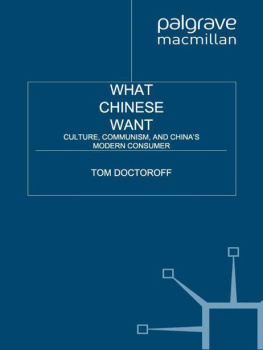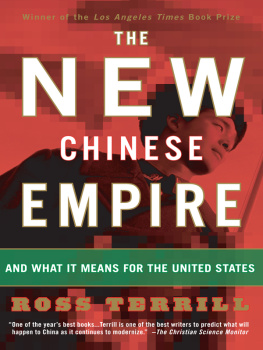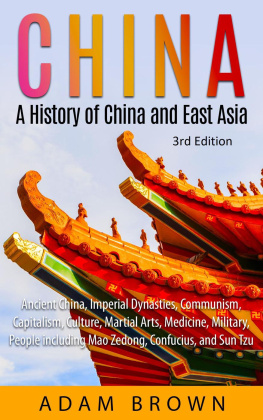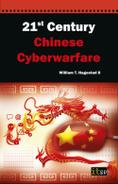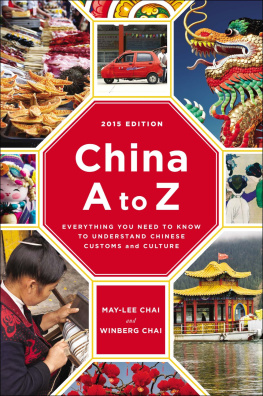ADDITIONAL PRAISE FORWHAT CHINESE WANT
What do Chinese want? Its a big question. But marketing guru Tom Doctoroff can handle it. He approaches rough business challenges not only strategically but also psychologically. He catches what numbers dont capture: the heart of a people and how it affects who succeeds and who fails on the mainland.
Jing Ulrich, Managing Director and Chairman of Global Markets, China, J.P. Morgan
Toms unique experience and perspective is a boon to anyone who plans to address the Chinese consumer. Insofar as it is possible to sum the sentiment and unique cultural underpinnings of this mammoth country, Tom has done it.
Kathleen Hall, Windows Global Campaigns and Product Marketing General Manager, Microsoft
In explaining what Chinese consumers want, Doctoroff vividly shows us where China is headed as a society and a world power.
Garrick Utley, Senior Fellow at SUNY Levin Institute
What Chinese Want is required reading for any business person that deals with Chinese nationals or companies. It will help you quickly learn what was so hard for me to understand during my five years of living in China: China is very different from the West, and Tom Doctoroff will explain what you need to know to succeed there.
Miguel Patricio, President of Anheuser-Busch InBev for Asia Pacific
The scale of potential opportunity in China is staggering. But business people who want to succeed in China often feel like they have landed on a different planet. Tom Doctoroffs book offers a very insightful, down-to-earth analysis of both whats driving growth in China as well as a nuanced analysis of the psychology of Chinese leaders and people. Anyone who wants to succeed big time in China will find his book very helpful and interesting.
Dr. Ramesh Tainwala, President Asia Pacific and Middle East, Samsonite Group
Tom Doctoroffs What Chinese Want succeeds in linking the most dynamic facets of the modern Chinese commercial and consumer landscape with the unique and timeless characteristics of Chinas people and culture.
John Quelch, Distinguished Professor of International Management, Vice President and Dean, CEIBS (China Europe International Business School)
This is a breakthrough work on the modern Chinese consumer. Rooted in a long and successful career in China, Tom Doctoroffs book gives a concrete, in-depth, and simple explanation about how this mysterious land really works that will begin to change the worlds biased understanding of a great country.
Pierre Xiao Lu, author of Elite China, professor of marketing at Fudan University in Shanghai, and Founder of China Market Institute Consulting
WHAT
CHINESE
WANT
CULTURE, COMMUNISM, AND CHINAS MODERN CONSUMER
TOM DOCTOROFF


WHAT CHINESE WANT
Copyright Tom Doctoroff, 2012.
All rights reserved.
First published in 2012 by
PALGRAVE MACMILLAN
in the United Statesa division of St. Martins Press LLC,
175 Fifth Avenue, New York, NY 10010.
Where this book is distributed in the UK, Europe and the rest of the world, this is by Palgrave Macmillan, a division of Macmillan Publishers Limited, registered in England, company number 785998, of Houndmills, Basingstoke, Hampshire RG21 6XS.
Palgrave Macmillan is the global academic imprint of the above companies and has companies and representatives throughout the world.
Palgrave and Macmillan are registered trademarks in the United States, the United Kingdom, Europe and other countries.
ISBN: 9780230340305
Library of Congress Cataloging-in-Publication Data
Doctoroff, Tom.
What Chinese want : Culture, Communism, and Chinas modern consumer / by Tom Doctoroff.
p. cm.
Includes index.
ISBN 9780230340305
1. ConsumersChinaAttitudes. 2. Consumers preferencesChina. 3. MarketingChina. 4. ChinaEconomic conditions21st century. I. Title.
HF5415.33.C6D634 2012
658.83430951dc23 2011041408
A catalogue record of the book is available from the British Library.
Design by Newgen Imaging Systems (P) Ltd., Chennai, India.
First edition: May 2012
10 9 8 7 6 5 4 3 2 1
Printed in the United States of America.
CONTENTS
Sir Martin Sorrell, CEO, WPP
IMAGES
FOREWORD
Sir Martin Sorrell, CEO, WPP
Over the past few years, China watchers have seen a change. The countrys business people, politicians, and academics display a new spring in their step. It isnt arrogance, merely greater confidence. I see it everywhere I goat conferences, at the World Economic Forum in Davos, and traveling in China.
There are good reasons for this newfound swagger. Yes, the Chinese peoples admirable ability to listen and learn is still there. But they rightly feel they have a little less to learn from us these daysespecially after the largely Western financial crisis of 2008. The scales have fallen from Chinese eyes. We messed up; they didnt. Now they are less inclined to take lectures on economics, politics, or human rights from Britain or the United States.
This new attitude provides ample opportunities for sly humor. When David Cameron announced that he was considering controlling social media to prevent a repeat of August 2011s rioting and looting in Britain, an editorial in a Chinese newspaper remarked, with evident relish, that it was good to see the British government understands that the Internet has to be moderated during times of crisis.
Although they would never put it so bluntly, the Chinese dont think were quite as good as we think we are. This should hardly come as a surprise. As Western countries struggle to maintain any sort of growth, the Chinese economy surges ahead.
While we agonize about containing our state debt, Chinese banks and companies pour money into the rest of the world. When Wen Jiabao, the Chinese premier, pledged to buy further Euro zone sovereign debt, the reaction was not one of concern about undue Chinese influence but relief. His pronouncement that Western countries should put their houses in order sets the tone for the new Chinese engagement with the world.
Wherever you go, you see the power of the renminbi. The Peoples Republic is still a net receiver of foreign direct investment, but its acquisitions abroad are catching up. China needs food and, even more important, Russian and Middle Eastern oil and gas, because it has few energy resources of its own.
The Chinese are expanding their influence around the world, even beyond the 800,000 Chinese people already living and working in Africa. Throughout the Mediterranean, central Europe, and farther afield, Beijing is on a global acquisition spree. Swedish car companies, Greek infrastructure, an oil firm in Canada, a mining company with assets in Central Africaall snapped up by China in the past few years.
Even in the unlikely territory of Iceland, the Middle Kingdom is making its presence felt. Huang Nubo, a Chinese businessman and poet, has offered $9 million for 300 square kilometers of wildness, 0.3 percent of the country. He says he wants to build a $100 million hotel, but some suspect ulterior motives.
Huang is not the only Chinese businessman benefiting from his countrys unique melding of carnivorous market forces and central state planning. The ranks of Chinese billionaires are swelling. A recently published rich list identified 270 billionaires flourishing in the Middle Kingdom, topped by Liang Wengen, a construction equipment tycoon with a net worth of about $11 billion. This is only half of it. The Hurun Rich List estimates that there may be the same number again, but they keep themselves and their assets from public scrutiny.
Next page
